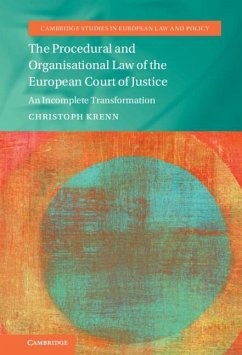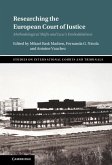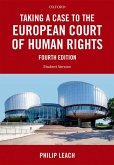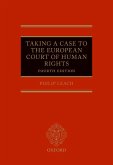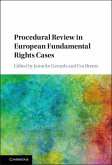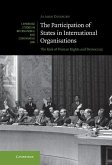How should judges of the European Court of Justice be selected, who should participate in the Court's proceedings and how should judgments be drafted? These questions have remained blind spots in the normative literature on the Court. This book aims to address them. It describes a vast, yet incomplete transformation: Originally, the Court was based on a classic international law model of court organisation and decision-making. Gradually, the concern for the effectiveness of EU law led to the reinvention of its procedural and organisational design. The role of the judge was reconceived as that of a neutral expert, an inner circle of participants emerged and the Court became more hierarchical. While these developments have enabled the Court to make EU law uniquely effective, they have also created problems from a democratic perspective. The book argues that it is time to democratise the Court and shows ways to do this.
Dieser Download kann aus rechtlichen Gründen nur mit Rechnungsadresse in A, B, BG, CY, CZ, D, DK, EW, E, FIN, F, GR, HR, H, IRL, I, LT, L, LR, M, NL, PL, P, R, S, SLO, SK ausgeliefert werden.

